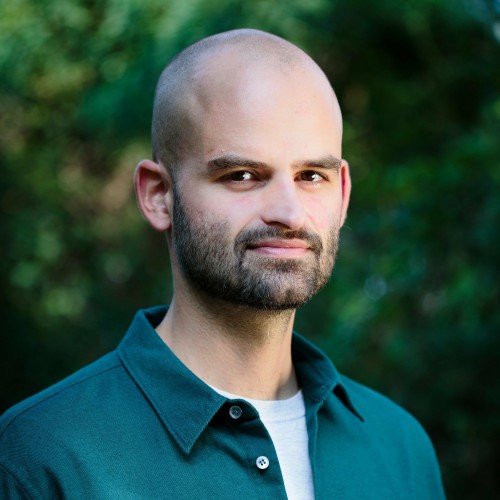
Independent science needs transparency
We filed a lawsuit against the University of Mainz. The university refused to release information about its industrial cooperations - and is endangering academic freedom.
Freelance journalist, activist and sinologist David Missal is conducting a research project on the influence of Chinese donors in the German university landscape. Among other things, he submitted a freedom of information request to the Johannes Gutenberg University Mainz about its research cooperations with the Chinese government and Chinese companies. The university initially refused to disclose the information, citing alleged trade secrets of Chinese third-party funders. "Cooperation with China is a hot potato for many universities. A lot of money beckons from the People's Republic. But universities also realise that cooperation with the Chinese dictatorship is now viewed more critically - that's why they are stonewalling," says Missal.
A first victory in Mainz
Johannes Gutenberg University in Mainz initially refused to release information on third-party funding from China, arguing that transparency about its industrial cooperations would violate the trade secrets of the companies concerned. However, due to our lawsuit Mainz University has now disclosed all third-party funding cooperations with China as well as having to bear the costs of the court proceedings. A clear victory for freedom of expression.
More on our first victory in Mainz
According to § 16 III of the Rhineland-Palatinate State Transparency Act (LTranspG RLP), the university is in fact under a duty to publish the names of third-party funders, the amount of third-party funding and the duration of the completed research projects financed with third-party funding. It has now complied with this obligation due to our complaint. "It is good that the university has now finally had to abandon its bunker mentality as a result of our lawsuit. Other German universities should also disclose their third-party funding - without first having to be threatened by legal action," says Missal. In addition, the court ruled that the University of Mainz must bear the costs of the proceedings. This is a clear signal that the court considered our lawsuit to be promising. If the University of Mainz had not given in, it would have been threatened with defeat.
You can watch the video of the GFF and sinologist David Missal about our lawsuit against the University of Potsdam on Youtube here.
Third-party cooperations are no trade secrets
Time and again, companies as well as government agencies try to abuse the protection of trade secrets in order to curtail legitimate information interests of the public. This is a major threat to our fundamental rights. In the LuxLeaks tax evasion scandal, the consultancy PWC reported whistleblower Antoine Deltour for disclosing trade secrets. He was eventually acquitted by the highest court. The diesel emissions scandal could perhaps have been uncovered much earlier, if the German government had not prohibited the TÜV from checking the engine software with reference to trade secrets. The European Food Safety Authority lost in court in its attempt to withhold documents on the approval of the herbicide glyphosate because they allegedly contained trade secrets of the Monsanto company. Similarly, the German government occasionally invokes trade secrets when refusing freedom of information requests.
Show more on third-party cooperations are no trade secrets
Trade secret protection serves to protect companies from competitive disadvantages when exclusive knowledge is made available to their competitors. However, this right must not be abused in order to undermine the justified expectations of transparency towards independent and free science at public universities. The fact that a university cooperates with third-party funders on research projects is not a secret of the third-party funders deserving protection.
Not every piece of information that is not openly accessible is also a trade secret. According to § 5 VI LTranspG RLP and the case law of the Federal Administrative Court, protection as a trade secret always requires a justified interest in secrecy. This restriction is highly important, as otherwise companies would even be allowed to cover up their own unlawful conduct. For example, the Administrative Court of Berlin ruled that the fact that a company had to pay a fine was not a trade secret because there was no legitimate interest in keeping it secret (VG Berlin, ruling of 10 May 2006 - VG 2 A 72.04). The prerequisite for a legitimate interest in secrecy is that the disclosure makes exclusive commercial knowledge accessible to competitors and that the company concerned suffers noticeable competitive disadvantages as a result. The fact that a company funds research at a public university is generally not of such importance as to justify protection as a trade secret.
At the end of 2019, I had to read in the newspaper that Freie Universität Berlin is also accepting money from China - the university where I did my Bachelor's degree. I was disappointed and shocked that the FU was now accepting money from the Chinese government - and that in addition, the money was for a degree programme at the university's China Institute.
Secret research cooperations endanger free science
In order to keep information about its cooperation with Chinese donors secret, University of Potsdam argues that making this information public would danger academic freedom. This argument fails to recognise that transparency in dealing with third-party-funded information promotes free, reliable and neutral science and protects the public's trust in its independence. Information on formal framework conditions such as the existence of third-party funding does not allow any conclusions to be drawn about the content of research and can therefore generally be made transparent. Freedom of science according to Article 5 III 1 GG protects underlying efforts to make research and teaching possible in practise – however, this does not include their secrecy.
More on secret research cooperations endanger free science
In the expert report "University Industry Cooperations, Access to Information and Freedom of Science", Prof. Dr. Klaus F. Gärditz examined cooperation agreements at University of Mainz on behalf of the GFF.
The expert report shows that research cooperations between third party funders and public universities can pose a particular threat to freedom of science enshrined in Article 5 III of the Basic Law. In this respect, freedom of science itself also contains a protective mandate that requires universities to handle third-party funding cooperations in a transparent manner. If higher education institutions deny access to information about the formal framework of their third-party funded projects, this raises doubts about the neutrality and independence of research. Commercial interests in the implementation of research projects pose a particular threat to the independence of science. In order not to undermine the fundamental rights expectations of independent science, extra transparency is needed as a counterweight.
The expert report also comes to the conclusion that private third parties who engage in cooperative ventures with public universities must accept their fundamental obligation of transparency. Therefore, companies must not include the fact that they enter into research cooperations with a public university as part of a market strategy that requires secrecy. The formal framework conditions of research cooperations are therefore fundamentally subject to the duty to inform and do not enjoy any protection of secrecy.
You can find more information on the expert opinion "University-industry cooperation, access to information and freedom of science" by Prof. Dr. Klaus F. Gärditz here. You can also download the report as a PDF.
Protecting transparency in court
Public rights to information are an important instrument for protecting the independence of science. Johannes Gutenberg University Mainz has already come under criticism in the past for its intransparent handling of industrial cooperation. The university refused to disclose cooperation contracts with the Boehringer-Ingelheim Foundation. When the contracts became public, it became apparent that the concerns about academic freedom were justified. The funding agreement granted the foundation far-reaching rights of co-decision-making that are incompatible with the constitutionally protected freedom of science. A court finally obliged the university to give a journalist access to the funding agreements.
Only after we filed a lawsuit did Johannes Gutenberg University Mainz disclose its research collaborations. The GFF will support further lawsuits to shed light on the darkness of research cooperations.




